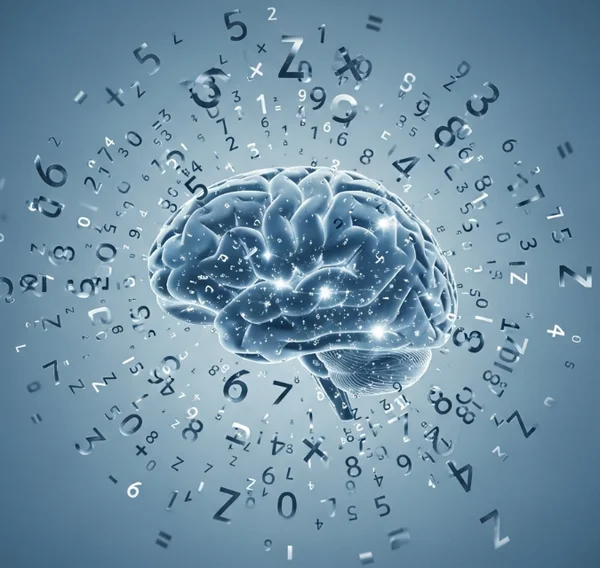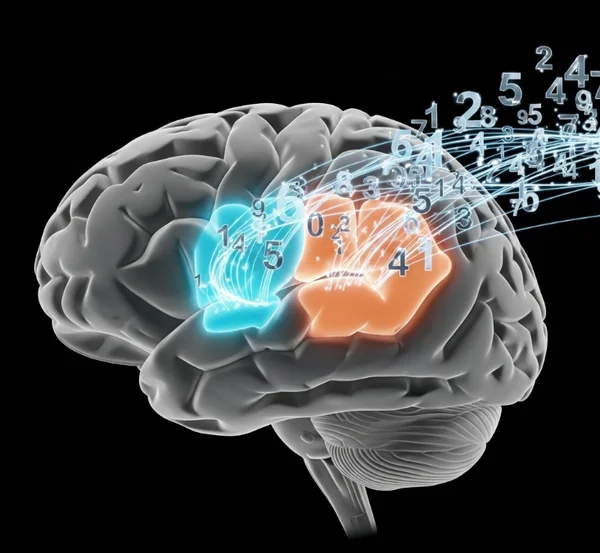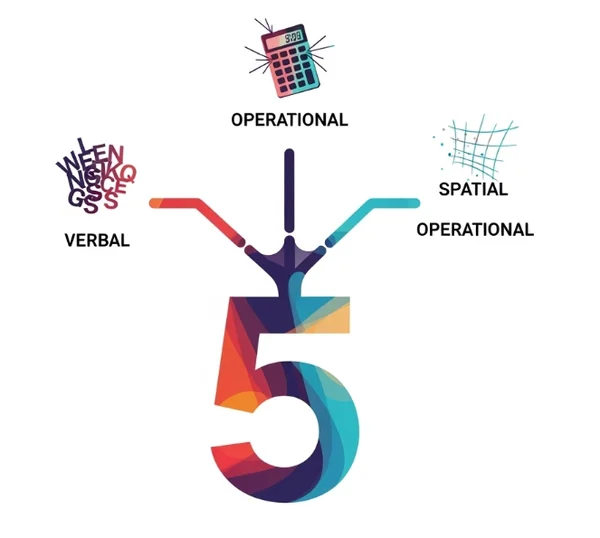What is Dyscalculia? Your Guide to Math Learning Differences
June 29, 2025 | By Aisha Bennett
Unlocking the Mystery of Math Struggles: Is it Dyscalculia?
Ever felt like numbers speak a secret language you can't quite grasp? Struggling with everyday math, from balancing a budget to telling time, can be incredibly frustrating – and often, it's simply dismissed as 'being bad at math.' But what if there's a more fundamental reason, a specific learning difference behind these persistent challenges? This guide dives deep into what dyscalculia is, a condition that affects how the brain processes numbers, offering much-needed clarity and paving the way for effective support. If this sounds familiar, taking a free and insightful dyscalculia test could be your first step towards understanding your unique learning profile. You can start your journey today.
What is Dyscalculia? Defining This Math Learning Disability
Dyscalculia is a specific learning disorder that affects a person's ability to understand and process numerical information and mathematical concepts. Unlike a general learning difficulty, it specifically targets math skills, often independent of intelligence levels. It's a neurological condition, stemming from the brain's unique 'wiring.' This means it directly affects how individuals perceive, store, retrieve, and use number-related information. Recognizing this as a math learning disability is key to providing tailored support and fostering a more inclusive learning environment.

More Than Just "Being Bad at Math": The True Dyscalculia Definition
A common misconception is equating dyscalculia with simply "being bad at math" or having "math anxiety." While math anxiety can certainly accompany dyscalculia, the core of dyscalculia lies in a fundamental difficulty with number sense and processing numerical information. This isn't about laziness or lack of effort; it’s about a difference in how the brain handles numerical concepts. The dyscalculia definition encompasses challenges such as understanding quantities, grasping mathematical symbols, memorizing basic facts, and applying mathematical reasoning. It's not just about getting the wrong answer; it's about not fully comprehending the underlying principles.
Dyscalculia vs. Dyslexia and Other Learning Differences
It's easy to confuse dyscalculia with other learning differences like dyslexia. While both are specific learning disorders, dyslexia primarily affects reading and language processing, whereas dyscalculia specifically impacts mathematical abilities. However, it's possible for individuals to experience both conditions, as learning differences often co-occur. Other related conditions might include ADHD, which can affect focus and organization, thereby indirectly impacting math learning. Understanding these distinctions helps ensure individuals receive the targeted support they need. Our comprehensive online dyscalculia screening tool can help differentiate between general struggles and specific learning challenges.
How Common is Dyscalculia? Understanding its Prevalence
Dyscalculia is more common than many people realize, affecting an estimated 5-7% of the population, which is roughly similar to the prevalence of dyslexia. This means millions of children, teenagers, and adults silently struggle with numbers. Despite its prevalence, awareness of dyscalculia remains lower compared to other learning differences. This lack of understanding often leads to frustration and a feeling of inadequacy for those affected. Recognizing how widespread this learning difference is can help reduce the stigma and encourage more people to seek understanding and support. If you are curious about your own math challenges, consider taking an online dyscalculia test.
What Causes Dyscalculia? Exploring the Underlying Factors
The exact causes of dyscalculia are complex and multifaceted, often involving a combination of genetic, neurological, and environmental factors. It's not a condition caused by poor teaching or a lack of intelligence, but rather by specific differences in brain function that affect mathematical processing. Unpacking these underlying factors is key to developing effective support strategies.
The Brain's Role: Genetic and Neurological Connections
Research indicates that dyscalculia often has a strong neurological basis. Studies using brain imaging have shown differences in the brain structure and activity of individuals with dyscalculia, particularly in areas associated with numerical processing, such as the intraparietal sulcus. These neurological differences can impact "number sense," the innate ability to estimate quantities and understand numerical relationships. There's also a genetic component; dyscalculia often runs in families, suggesting a hereditary predisposition. Understanding the brain's role helps us view dyscalculia not as a "defect," but as a different way of processing information.

Environmental and Educational Influences on Math Skills
While primarily neurological, environmental and educational factors can also play a role in how dyscalculia manifests and how individuals cope with it. A lack of early exposure to fundamental mathematical concepts, inadequate teaching methods for diverse learners, or high levels of math anxiety in the learning environment can exacerbate inherent difficulties. Conversely, early intervention and tailored educational approaches can significantly improve outcomes. A supportive environment that recognizes and accommodates a student's unique learning needs is vital for building confidence and developing coping mechanisms. To gain insights into personalized strategies, check your math skills.
Types of Dyscalculia: Recognizing Different Manifestations
Dyscalculia isn't a single, uniform condition; it can manifest in various ways, affecting different aspects of mathematical ability. Recognizing these distinct types can help in tailoring support and understanding an individual's specific challenges. These categories describe the primary areas of difficulty, though an individual may experience a combination of types.

Verbal Dyscalculia: Struggles with Math Language
Verbal dyscalculia refers to difficulties with naming and understanding mathematical terms and concepts presented verbally. Individuals with this type might struggle to grasp concepts like "greater than" or "less than," understand sequences, or recall mathematical facts presented orally. They might have trouble associating the word "five" with the numeral "5" or the quantity of five objects. This makes following verbal instructions in math classes particularly challenging.
Operational Dyscalculia: Challenges with Calculations and Concepts
Operational dyscalculia involves difficulties performing mathematical operations and understanding abstract mathematical concepts. This can manifest as struggles with basic addition, subtraction, multiplication, and division, even when the individual understands the numbers themselves. They might struggle with the order of operations, carrying over or borrowing, or understanding the logic behind multi-step problems. This type affects the practical application of arithmetic skills.
Spatial Dyscalculia: When Numbers and Space Don't Connect
Spatial dyscalculia relates to difficulties with the spatial organization of numbers, such as aligning columns for calculations, understanding negative numbers on a number line, or interpreting graphs and charts. Individuals might mix up numbers, struggle with concepts like place value, or have trouble with geometry and spatial reasoning. This often extends beyond math to difficulties with direction, navigation, and even distinguishing left from right.
Identifying Dyscalculia: Recognizing the Signs Across Ages
Identifying dyscalculia involves observing consistent patterns of difficulty with numerical and mathematical tasks. These signs of dyscalculia can vary depending on age, but often reflect core challenges with number sense. Early recognition is crucial for implementing effective support. If these signs resonate with you or someone you care about, taking a comprehensive dyscalculia assessment can be a valuable first step toward understanding.
Early Indicators of Dyscalculia in Children and Teenagers
In children and teenagers, early indicators of dyscalculia can include:
- Difficulty learning to count, especially skipping numbers.
- Struggles recognizing number patterns or sequencing numbers.
- Trouble connecting a numeral to its quantity (e.g., "3" to three objects).
- Reliance on counting on fingers long after peers have moved on.
- Significant difficulty with basic addition and subtraction, even simple facts.
- Struggling with telling time or understanding money.
- High levels of anxiety when faced with math tasks.
- Poor memory for math facts, formulas, or procedures.
For parents or educators observing these signs, a targeted dyscalculia test for child or dyscalculia test teenager can provide initial insights.
Dyscalculia Symptoms in Adults: It's Never Too Late to Understand
Many adults live undiagnosed with dyscalculia, often attributing their struggles to general "math illiteracy." However, dyscalculia symptoms in adults can significantly impact daily life and a professional aspirations. These might include:
- Consistent difficulty with budgeting, balancing a checkbook, or managing finances.
- Struggling to estimate distances, speeds, or quantities.
- Difficulty reading analog clocks or remembering sequences (like phone numbers).
- Challenges with mental math, even for simple calculations.
- Trouble following recipes that require measurements.
- Anxiety or avoidance of situations involving numbers (e.g., splitting a bill, data analysis at work).
- Difficulty understanding statistics or graphs.
If these experiences resonate, an accessible dyscalculia test for adults can be a powerful tool for self-understanding and finding appropriate coping strategies. You don't have to navigate these challenges alone.

Empowering Yourself with Knowledge: Your Next Steps
Grasping what dyscalculia truly means empowers you to seek tailored support and discover effective strategies. It's a journey of understanding, not a label of limitation. Recognizing the signs, exploring the underlying factors, and appreciating the diverse manifestations of dyscalculia can empower individuals, parents, and educators to seek appropriate support. Remember, a screening tool is not a diagnosis. It’s a starting point for deeper understanding.
If you or a loved one are experiencing these mathematical challenges, we invite you to take our free, professionally designed online dyscalculia test. This screening offers immediate basic results and the option for an AI-driven personalized analysis report, providing deeper insights and tailored strategies. Make exploration easier, make life richer. Discover your potential today and begin to unlock your unique mathematical mind.
Your Questions About Dyscalculia Answered
How do you get tested for dyscalculia?
Testing for dyscalculia typically involves a comprehensive evaluation by a qualified professional, such as an educational psychologist, neuropsychologist, or learning specialist. This assessment includes standardized tests of mathematical ability, cognitive processing, and sometimes academic achievement. However, a great starting point for self-understanding is a reliable online screening tool. Our platform offers a free dyscalculia test that can provide initial insights into potential math learning differences. Explore your options to understand your profile.
Is there a reliable free dyscalculia test online?
Yes, absolutely! While an online test cannot provide a formal medical diagnosis, our platform offers a reliable free dyscalculia test online. Developed by education psychologists and math experts, our screening tool helps you identify potential signs of dyscalculia and provides immediate preliminary results. You can even opt for an AI-generated personalized report for deeper insights and tailored strategies. It’s a convenient and confidential way to begin your dyscalculia assessment journey. Start your test now.
What's the difference between dyscalculia and simply being "bad at math"?
The key difference lies in the underlying cause. Being "bad at math" often implies a lack of practice, inconsistent teaching, or simply a disinterest in the subject, which can usually be overcome with targeted effort. Dyscalculia, however, is a specific learning disorder rooted in neurological differences that affect number sense and mathematical reasoning. It's a persistent, often lifelong challenge, independent of intelligence or effort. It means the brain processes numerical information differently. Our screening can help you understand if your struggles are typical learning difficulties or align with signs of dyscalculia.
Can dyscalculia be cured or improved?
Dyscalculia cannot be "cured" in the traditional sense, as it's a neurological difference, not a disease. However, it can be significantly improved and managed with appropriate strategies, interventions, and accommodations. Early identification and targeted support are key. Many individuals with dyscalculia learn to cope effectively and achieve success in various aspects of life. Our website provides valuable information and our AI-driven reports offer personalized support strategies to help individuals with math learning disability navigate their challenges. Take a step towards understanding and empowerment; begin your assessment.